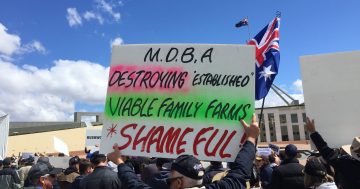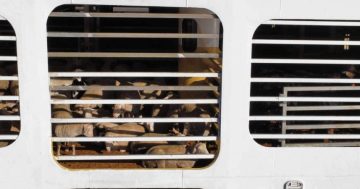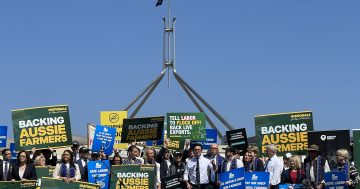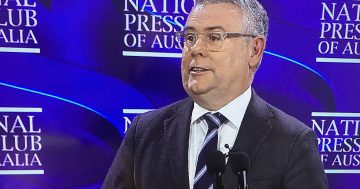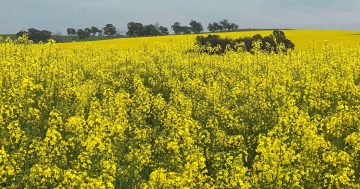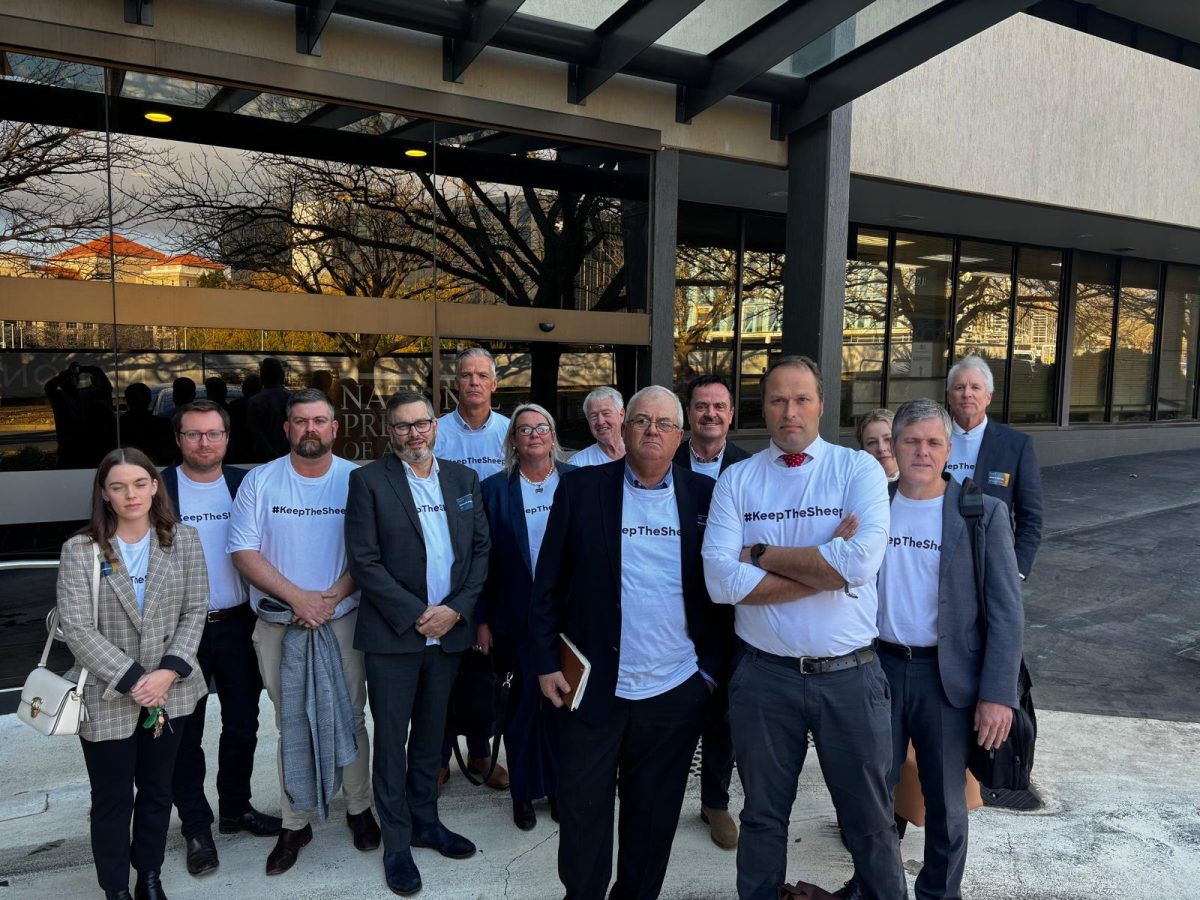
The National Farmers’ Federation and multiple peak agricultural bodies walked out during Agriculture Minister Murray Watt’s address at the National Press Club to demonstrate their contempt for the four-year export transition plan. Photo: NFF.
Following the announcement of a four-year plan to phase out live sheep exports, the National Farmers’ Federation (NFF) has – in protest – filed a motion of no confidence in the Federal Government.
In his post-budget speech at the National Press Club, Federal Minister for Agriculture Murray Watt told a room full of peak agricultural bodies that the export of live sheep by sea from Australia would end on 1 May, 2028.
He said the government would deliver on its election commitment by introducing legislation enacting the phase-out in this term of Parliament.
“We are giving certainty to sheep producers and the supply chain by legislating the date, and putting $107 million on the table to enable an orderly and well-planned transition away from the trade,” Minister Watt said.
“We want to ensure those affected by the phase-out are well positioned, resilient and ready when the trade ends in 2028.”
The Minister said Australia’s lamb and mutton exports were worth $4.5 billion in 2022-23, whereas live-sheep exports by sea were less than $77 million in 2022-23 – less than 0.1 per cent of the estimated agricultural production in that year.
“While live-sheep exports have shrunk by $338 million over the past 20 years, our sheepmeat exports have grown by over 300 per cent over that same period, with exports to the North Africa and Middle East region more than tripling in value over this period,” he said.
“This package will provide more consumers, at home and overseas, with the opportunity to sample Australia’s world-class sheepmeat products.”
When the Minister started talking about the ban, a group comprising the NFF, Wool Producers Australia, Sheep Producers Australia, Cattle Australia, Australian Livestock Export Council, WA Farmers, AgForce Queensland and NSW Farmers left the event in protest.
A few days later, the NFF Members Council, representing Australia’s state and commodity agricultural organisations, carried three motions:
- That the NFF no longer has confidence in the Albanese Government to act in the interests of Australian agriculture
- The NFF believes Cabinet and Caucus have made the live export decision without considering the scientific and industry data presented in the consultation process, to the detriment of all sectors of agriculture
- The NFF rejects the current assistance package as a token gesture and sees the only satisfactory outcome is the continuation of the trade in live sheep.
NFF president David Jochinke holds that farmers, fishers and foresters feel they are being treated with contempt as the government pursues its “single-minded” policy agenda.
“There is clear disconnect between what the government is doing and what farmers need to remain profitable and productive,” Mr Jochinke said.
“The government says it’s listening, but today the agriculture sector reiterated its view – that farmers do not feel like they are being recognised.
“The live-sheep export ban timeframe is just the final straw. We say to the government: stop with the poor policy and red tape. Stop taking away our markets, our water, our workers, our land.”
Mr Jochinke said the farm sector could be Australia’s next $100 billion industry, but it needed a government that backed it.
Earlier in the week, Minister Watt was interviewed on Perth radio show 6PR Mornings. The Minister was asked whether he agreed with Western Australia Premier Roger Cook’s belief that the ban would be devastating for the state’s industry.
“I respectfully disagree with the Premier on that point,” he said. “I actually think this is about setting up the WA sheep industry for well into the future.”
Minister Watt said when other states got out of live-sheep exports by sea, they reaped the long-term benefits of moving into wool production and onshore processing.
He said the government wanted WA to follow suit and take advantage of the boom in demand for sheepmeat and other commodities, but follow the independent panel’s recommendation of a four-year phase-out – as an immediate cessation would be “catastrophic” for the state’s sheep industry.
Mr Watt also ruled out ending the live-cattle trade, because it was a critical economic pillar of northern Australia, and from animal welfare grounds as they were “hardier species than sheep”.


